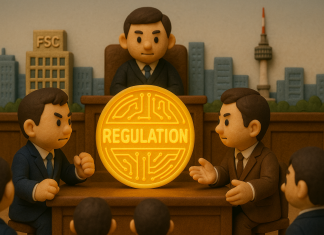
In the so-called “Haru Invest” case, where losses exceeded 880 billion won due to alleged cryptocurrency investment fraud, the court’s first ruling acquitted the main defendant, prompting prosecutors to file an immediate appeal. The case has drawn significant attention, as over 3,000 investors were affected, and most of the funds remain unrecovered following the platform’s closure.
Haru Invest had recruited numerous investors from 2020 onward, promising high returns. Prosecutors argued that the operators deceived investors through false contracts and manipulated yields, using a pyramid-like structure to cover payouts. However, the first-instance court ruled that “the investment risks were disclosed and some losses stemmed from market fluctuations,” leading to the acquittal.
Prosecutors declared right after the verdict, “The evidence clearly shows fraudulent contracts and hidden fund flows,” and announced plans to appeal. In the second trial, the prosecution intends to submit additional evidence, including records of overseas remittances and links to voice phishing schemes.
Another key issue concerns B&S Holdings, identified as the de facto operator behind Haru Invest. Victims allege that B&S Holdings effectively controlled the platform’s fund management and profit distribution and have filed civil lawsuits claiming compensation. Recently, the Supreme Court partially acknowledged B&S Holdings’ liability but rejected a request to seize all corporate assets, fueling further controversy.
Legal experts are divided. Some predict that “since the first trial resulted in acquittal, proving guilt in the appeal will be difficult,” while others argue that “given the scale of damage and repeated deceptive practices, a conviction is still possible.” Financial regulators have announced plans to tighten oversight of unlicensed investment platforms in response to the case.
Prosecutors emphasized, “Investment solicitations disguised as cryptocurrency markets constitute a serious disruption of financial order,” vowing to pursue accountability to the end. Victim groups have also declared their intention to take the case to the Supreme Court if necessary, signaling an increasingly fierce legal battle.






